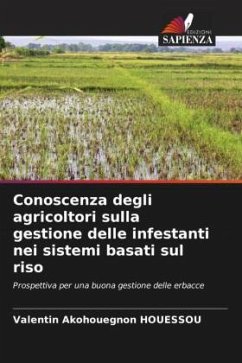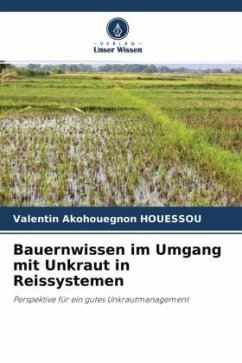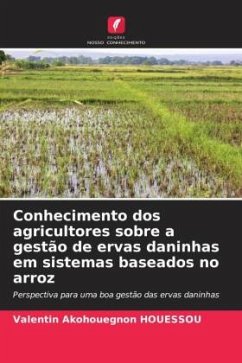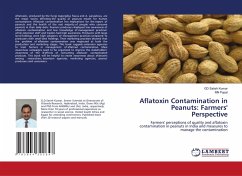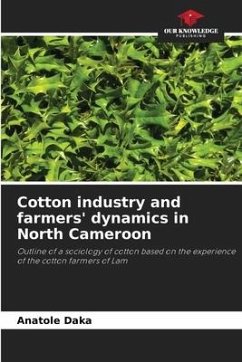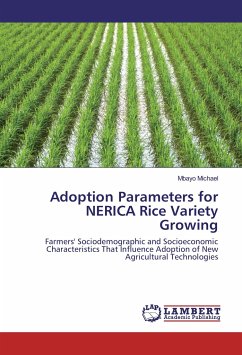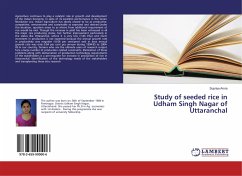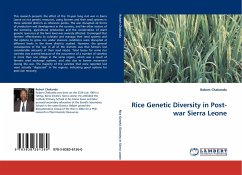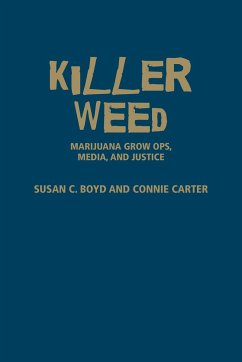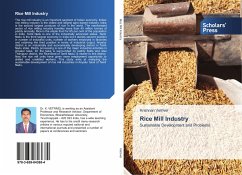
Farmers' knowledge of weed management in rice-based systems
Perspective for Good Weed Management
Versandkostenfrei!
Versandfertig in 6-10 Tagen
29,99 €
inkl. MwSt.

PAYBACK Punkte
15 °P sammeln!
Rice is one of the most widely grown cereals in the world and is a source of food for more than half the world's population. Among the various abiotic and biotic factors restricting rice yield in Africa, weeds are considered one of the most important. Despite the efforts made by the scientific community, weeds remain a major constraint to African rice production, causing enormous yield losses in rice-growing areas of many African countries, including Benin. Coping with this problem requires good knowledge of farmers' perceptions of weeds.This study was based mainly on a survey of a sample of 2...
Rice is one of the most widely grown cereals in the world and is a source of food for more than half the world's population. Among the various abiotic and biotic factors restricting rice yield in Africa, weeds are considered one of the most important. Despite the efforts made by the scientific community, weeds remain a major constraint to African rice production, causing enormous yield losses in rice-growing areas of many African countries, including Benin. Coping with this problem requires good knowledge of farmers' perceptions of weeds.This study was based mainly on a survey of a sample of 23 farmers from five (05) villages selected in different agro-ecological zones in the two communes of Dassa and Glazoué. The techniques of documentary study, individual interviews, observation and focus groups were used to collect data that was processed and analyzed with NVivo 9 software.



